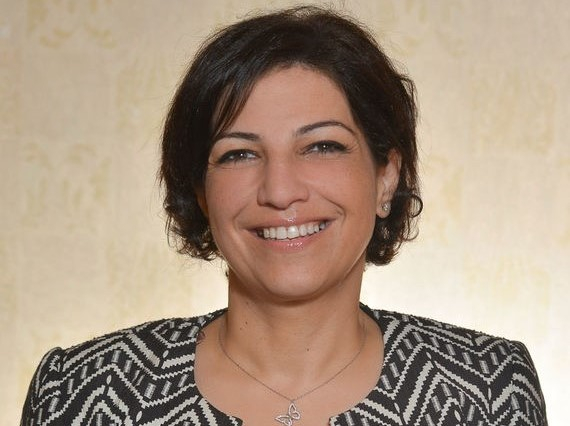24-10-2023
On Tuesday 24 October, Atria and WO=MEN organised the 10th knowledge session for the upcoming Commission on the Status of Women (CSW68) in 2024. The guest was Hadeel Abdel Aziz from Jordan: founder of the Justice Center for Legal Aid (JCLA) and human rights activist. She spoke about access to justice for Jordanian women in poverty.
Accessibility of the justice system
The Justice Centre for Legal Aid was founded in 2008. Their mission: a national justice system that is there for everyone, regardless of a person's gender, education level, language or refugee status. In Jordan, the legal system is a bit more complicated than in some other countries. In fact, in addition to the regular system, there are Sharia and ecclesiastical courts. According to the Jordanian constitution, everyone has access to the legal system, but in practice this is different. Generally, only people with money have access and these are mostly not women. Hadeel explains that Jordanian women have the least access to the job market in the world. That means that most women depend on their husbands or families for their income.
Hadeel also said that people in poverty are (almost) not entitled to a lawyer from the state. Financial independence for women is therefore crucial to access justice, and access to justice is necessary to achieve justice. For example, the right to be protected from an aggressive partner.
''A so-called system of care is created to take away women's voices and agency: this is how the patriarchy works.''
Suppose you are a female refugee with no education and from a low socio-economic class. All these characteristics stack up against you and make you more and more vulnerable. You become essentially invisible to family, the system and the government. And when you manage to get into the court: you are still not heard.
What about other marginalised groups, such as LGBTIQ+?
Homosexuality is not formally punishable in Jordan. But people get arrested or harassed by police when they act "against public order". This is so vague that it can be used for almost anything against people who are already experiencing stigma and discrimination.
In short, if you are queer, a refugee or a woman in Jordan, you have little or no access to justice.
What does JCLA do?
To improve access to justice for women in poverty in Jordan, JCLA works with lawyers and trains them further. They offer legal aid throughout the country and try to help the people who are mostly left out. Hadeel's experience is that it is essential to assist vulnerable women with a lawyer from the very beginning, to avoid mistreatment and deception. Through a lawyer, who can correctly inform them of their rights and with whom they can discuss risks and opportunities, women can make informed decisions.
JCLA uses strategic litigation to challenge laws in court. "I call it the human rights dance: two steps forward and one step back. And sometimes one step forward and two steps back.” Such processes take time and resources, and it is this type of work that is difficult to get funds for. ''Donors look for low-hanging fruit, but we need institutional, sustainable change. We need long-term impact.''
On the CSW68 recommendations
CSW68 focuses on the theme of accelerating gender equality and the empowerment of all women and girls by addressing poverty and strengthening institutions and financing from a gender perspective. When access to justice is for all, especially people in poverty, it can assist and strengthen social movements. Strong social movements, in turn, can help improve laws and exert pressure for the proper implementation of laws.
''Access to justice is needed to get rights. There are many rights on paper in Jordan, but we need to demand they are implemented through the court system.''
We thank Hadeel Abdel Aziz for sharing her knowledge and her inspiring words during this knowledge session.
Want to know more about the UN Commission on the Status of Women (CSW)? Sign up for the mailinglist
here.
And take a look at our
CSW blog page where you can read a lot about the CSW experiences of recent years. Some articles are in Dutch, others in English.
